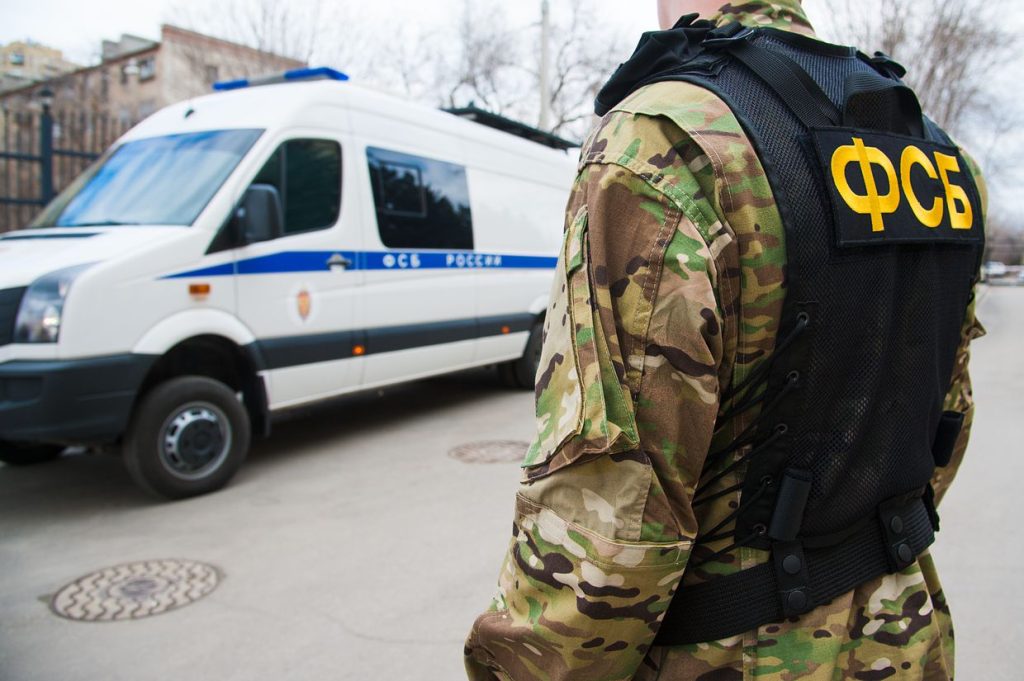The Russian Federal Security Service (FSB) claimed to have prevented a terrorist attack in Stavropol Krai in southern Russia by detaining three citizens of an unnamed Central Asian country who allegedly planned to cause an explosion. The FSB reported seizing components of an improvised explosive device, chemicals, and munitions from the detainees at their place of residence. The Kyiv Independent was unable to independently verify these claims. This announcement came after a recent attack at a concert hall in Krasnogorsk outside Moscow, which resulted in the deaths of at least 144 people. While the Islamic State claimed responsibility, Russian dictator Vladimir Putin accused Ukraine of involvement without providing evidence, a claim rejected by Ukraine and the U.S.
Following the Moscow attack, the U.S. Embassy in Russia issued a warning about potential imminent plans by extremists to target large gatherings in Moscow. This led to several countries, including the U.K., Canada, and Germany, issuing similar statements advising citizens to avoid crowded areas and venues. However, Alexander Bortnikov, the head of the FSB, dismissed these warnings as being only “general” in nature. Kyrylo Budanov, an intelligence chief, revealed that Russia had knowledge about the preparations for the terror attack at least since February 15. He mentioned that Russia was aware of the attackers’ origin and the route through which they would enter Russian territory, suggesting that the attack did not appear suddenly.
The FSB’s claims and the subsequent accusations by Putin have raised tensions between Russia and Ukraine, as well as with other countries that have been monitoring the situation. The FSB’s actions to prevent a potential terrorist attack and the ongoing investigation into the suspects highlight the ongoing security challenges faced by Russia and its neighboring countries. The conflicting narratives and lack of concrete evidence in attributing blame for the attack further complicate the situation and raise concerns about the reliability of intelligence sharing and cooperation among international partners in combating terrorism. The need for transparency and accountability in addressing security threats is crucial to prevent further incidents and maintain stability in the region.
The role of independent journalism in reporting on incidents like the Stavropol Krai terror plot is essential in providing accurate and unbiased information to the public. By supporting independent media outlets, individuals can contribute to the transparency and accountability of security agencies and governments in addressing security threats. The dissemination of reliable information and investigative reporting can help debunk misinformation and propaganda, enabling citizens to make informed decisions and hold authorities accountable. As the situation unfolds and more details emerge, independent journalism plays a vital role in shedding light on the complexities of the security landscape in Russia and its implications for regional stability and international relations.
The need for international cooperation and collaboration in counterterrorism efforts is underscored by the recent events in Russia and the challenges posed by extremist threats. By strengthening partnerships and information sharing among countries, law enforcement agencies, and intelligence services, the global community can enhance its capacity to prevent and respond to terrorist activities effectively. The exchange of intelligence, joint operations, and coordinated responses are essential components of a comprehensive strategy to combat terrorism and ensure the safety and security of citizens worldwide. By supporting initiatives that promote cooperation and unity in addressing security threats, individuals can contribute to building a more peaceful and secure world for future generations.















